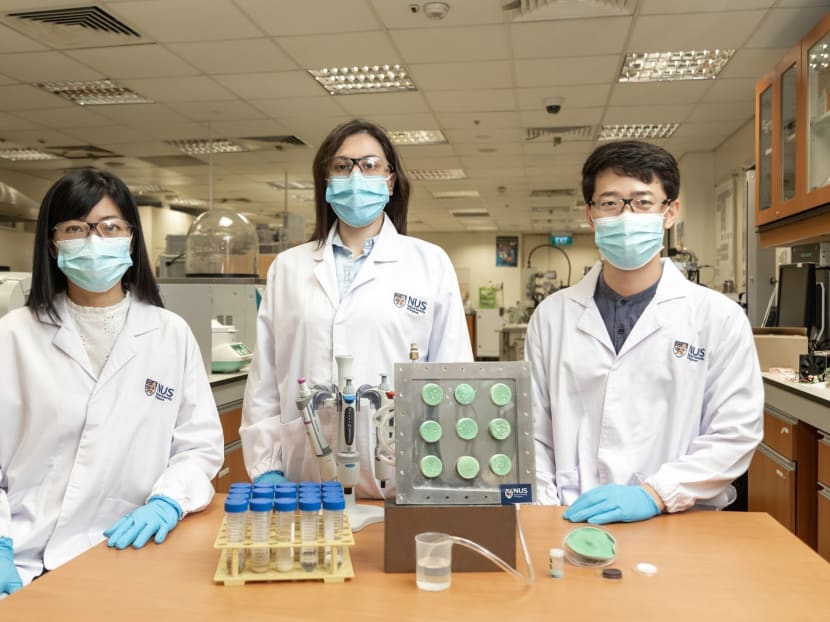NUS researchers create aerogel that turns air into drinking water
SINGAPORE — Not requiring any machine or power to extract water from the air sounds like a scene out of a science fiction movie, but researchers from the National University of Singapore (NUS) have done just that.

Dr Gamze Yilmaz (centre) and Dr Fan Lu Meng (right) were part of the research team that invented the water-producing aerogel, led by Professor Ho Ghim Wei (left).
SINGAPORE — Not requiring any machine or power to extract water from the air sounds like a scene out of a science fiction movie, but researchers from the National University of Singapore (NUS) have done just that.
A team from the NUS Department of Electrical and Computer Engineering have created a type of aerogel — a solid material with very low density — that condenses water vapour into drinking water, all without an external battery or power source.
In a humid environment, a kilogramme of the material produces 17 litres of water a day, enough to meet a household’s daily needs, NUS said in a media release on Tuesday (Jan 19).
During laboratory tests, the material produced water non-stop for 1,440 hours, or around two months, the university added.
HOW IT WORKS
The aerogel is made of long, snakelike molecules known as polymers, which continuously switch between attracting and repelling water.
The “smart” material “autonomously” gathers water molecules from the air, condenses them into a liquid and releases the water, said NUS.
Almost all the water vapour gathered, or 95 per cent, comes out as water.
The researchers have also tested the water and found that it met the World Health Organization’s standards for drinking water, the university added.
Previously, scientists have developed other ways of extracting water from air, but those methods required external power sources, such as sunlight or electricity, or had moving parts that needed to be opened and closed, the university said.
The researchers are now seeking industry partners who can scale up production of the aerogel for domestic or industrial use — for example, in survival kits or for endurance sports.
Professor Ho Ghim Wei, who led the NUS research team, said: “Given that atmospheric water is continuously replenished by the global hydrological cycle, our invention offers a promising solution for achieving sustainable freshwater production in a variety of climatic conditions, at minimal energy cost.”








